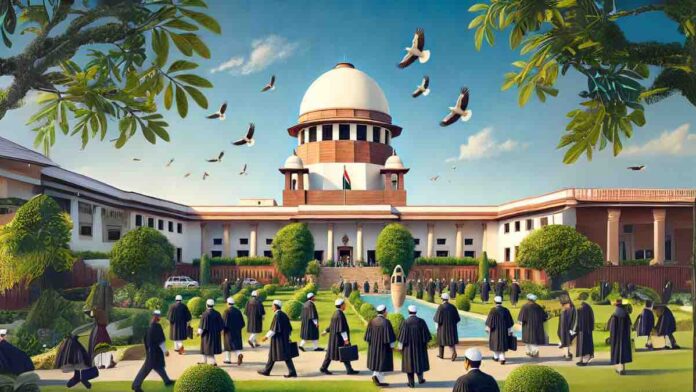The Supreme Court in Soumen Paul & Ors. vs. Shrabani Nayek & Ors. has clarified that eligibility for public employment must be assessed either on the date specified in the applicable recruitment rules or, if no such date is mentioned, on the cut-off date specified in the recruitment advertisement. Setting aside a Calcutta High Court
To Read More Please Subscribe to VIP Membership for Unlimited Access to All the Articles, Download Available Copies of Judgments/Order, Acess to Central/State Bare Acts, Advertisement Free Content, Access to More than 4000 Legal Drafts( Readymade Editable Formats of Suits, Petitions, Writs, Legal Notices, Divorce Petitions, 138 Notices, Bail Applications etc.) in Hindi and English.




